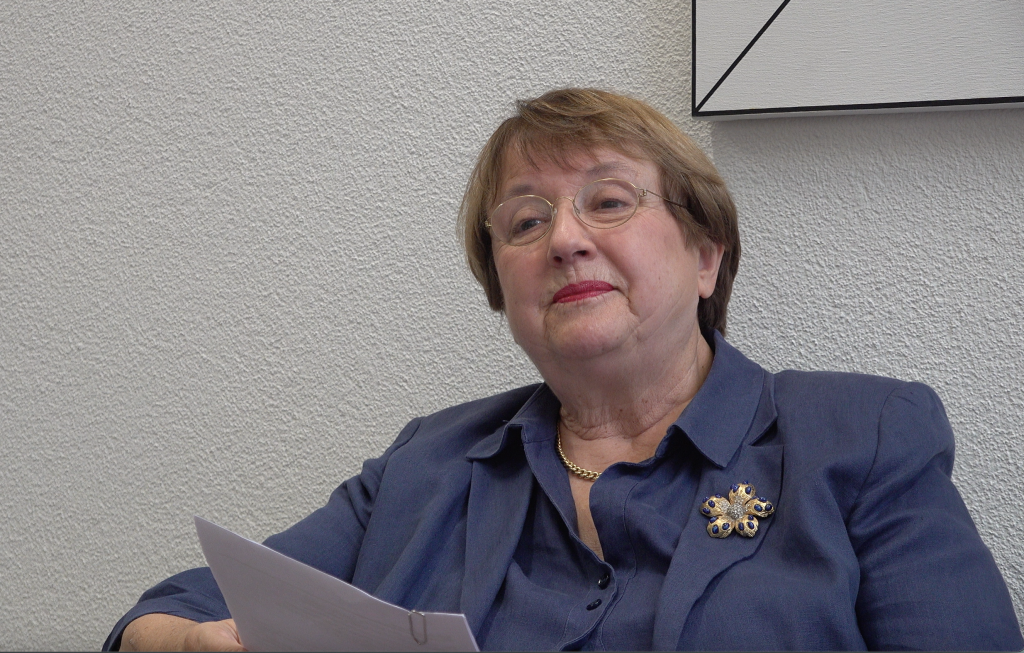‘The crux of equality lies in the family. If differences are made there, they are almost impossible to undo.’
Born in Bern, Ruth Reusser was the youngest of three girls in a family where the advancement of daughters was taken for granted. Her father, a senior judge by profession, would often talk vividly at the dinner table about the legal cases that occupied him. These conversations not only gave Ruth Reusser her first insight into the judiciary, but also awakened her fascination for the law, with its focus on people. She had to decide between mathematics, biology and law, and finally chose law – a decision she has never regretted.
She passed her Matura in 1965 and began studying law at the University of Berne. With 100 male students, she and five other women formed a small minority at the Faculty of Law. Despite this under-representation, she experienced no discrimination or devaluation – neither from students nor from professors. Ruth Reusser found her years of study formative and enriching, and when she graduated in 1970, she was offered a unique professional opportunity: the secretariat of the Expert Commission on Family Law.
This marked the beginning of a career that would influence far-reaching legal reforms in Swiss family law over several decades. She was particularly involved in the revision of adoption, child, marriage and divorce laws, and was a passionate advocate of legal changes that prioritised the well-being of women and children. She was particularly passionate about the new Marriage Act – which she campaigned for at least 120 times in her spare time following a referendum – and the equal treatment of children born out of wedlock.
Over the years, she rose through the ranks to become the first female head of section and then deputy director. Driven by the goal of eliminating structural discrimination and strengthening the rights of disadvantaged groups, she made a significant contribution to reforms that have had a lasting impact on Swiss law. Her career is an example of the commitment and conviction that legal equality begins in society – and therefore in the family.

